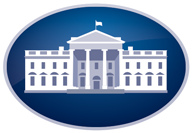

The President’s Weekly Address post is also an Open News Thread. Feel free to share other news stories in the comments.
From the White House – Weekly Address
In this week’s address, the President spoke about the work the Administration is doing to enhance trust between communities and law enforcement in the year since the death of Michael Brown in Ferguson. In May, the President’s Task Force on 21st Century Policing released their final report setting out concrete proposals to build trust and enhance public safety. And across America local leaders are working to put these ideas into action in their communities. The President noted that while progress is being made, these issues go beyond policing, which is why the Administration is committed to achieving broader reforms to the criminal justice system and to making new investments in our children and their future.
Transcript: Weekly Address: Continuing Work To Improve Community Policing
Remarks of President Barack Obama, Weekly Address, The White House August 15, 2015
Hi everybody. It’s now been a year since the tragic death of Michael Brown in Ferguson, Missouri. His death—along with the events in Cleveland, Staten Island, Baltimore, Cincinnati, and other communities—sparked protests and soul searching all across our country. Over the past year, we’ve come to see, more clearly than ever, the frustration in many communities of color and the feeling that our laws can be applied unevenly.
After Ferguson, I said that we had to face these issues squarely. I convened a task force on community policing to find commonsense steps that can help us drive down crime and build up trust and cooperation between communities and police, who put their lives on the line every single day to help keep us safe. And I’ve met personally with rank and file officers to hear their ideas.
In May, this task force made up of police officers, activists and academics proposed 59 recommendations – everything from how we can make better use of data and technology, to how we train police officers, to how law enforcement engages with our schools. And we’ve been working with communities across America to put these ideas into action.
Dozens of police departments are now sharing more data with the public, including on citations, stops and searches, and shootings involving law enforcement. We’ve brought together leaders from across the country to explore alternatives to incarceration. The Justice Department has begun pilot programs to help police use body cameras and collect data on the use of force. This fall, the department will award more than $160 million in grants to support law enforcement and community organizations that are working to improve policing. And all across the country – from states like Illinois and Ohio, to cities like Philadelphia, Boston, and Nashville – local leaders are working to implement the task force recommendations in a way that works for their communities.
So we’ve made progress. And we’ll keep at it. But let’s be clear: the issues raised over the past year aren’t new, and they won’t be solved by policing alone. We simply can’t ask our police to contain and control issues that the rest of us aren’t willing to address—as a society. That starts with reforming a criminal justice system that too often is a pipeline from inadequate schools to overcrowded jails, wreaking havoc on communities and families all across the country. So we need Congress to reform our federal sentencing laws for non-violent drug offenders. We need to keep working to help more prisoners take steps to turn their lives around so they can contribute to their communities after they’ve served their time.
More broadly, we need to truly invest in our children and our communities so that more young people see a better path for their lives. That means investing in early childhood education, job training, pathways to college. It means dealing honestly with issues of race, poverty, and class that leave too many communities feeling isolated and segregated from greater opportunity. It means expanding that opportunity to every American willing to work for it, no matter what zip code they were born into.
Because, in the end, that’s always been the promise of America. And that’s what I’ll keep working for every single day that I’m President. Thanks everybody, and have a great weekend.
Bolding added.
~

President Obama:
We must address NOW what the President calls “the frustration in many communities of color and the feeling that our laws can be applied unevenly”. #BlackLivesMatter
The president talked about expanding “opportunity to every American willing to work for it, no matter what zip code they were born into”.
From ThinkProgress: How A Poor Neighborhood Becomes A Trap
It appears that it will take some political will to fix this:
The President will be going to Alaska later this month! No, not to see Russia from Sarah Palin’s front door, but for this:
Last night at the Iowa Wing Ding Dinner, Hillary Clinton – not too concerned about Emailghaziiiiii!!
Here is a link to the MSNBC video with the Wing Ding speeches: Hillary Clinton, following by Bernie Sanders, and Martin O’Malley.
Democratic presidential candidates Hillary Clinton, Bernie Sanders and Martin O’Malley attend the “Wing Ding” dinner fundraising event in Clear Lake, Iowa.
(Hillary Clinton at 1:10, Bernie Sanders at 1:35, Martin O’Malley at 2:02, eating and chanting in between)
Coverage of the speeches: from the Associated Press and from Politico.
In the News: Animus River reopens to boating …
President Obama wrote a Letter to the Editor to the NY Times this past week:
A North Carolina newspaper, The News & Observerl adds more context:
In the News: Coffee crops at risk …
For Tanzania’s coffee farmers, climate change is a buzz kill
The largely untold story of the Unangax: Alaska’s Unangax work to preserve culture quashed by WWII internment
Great news roundup as always Jan!
Thank you.